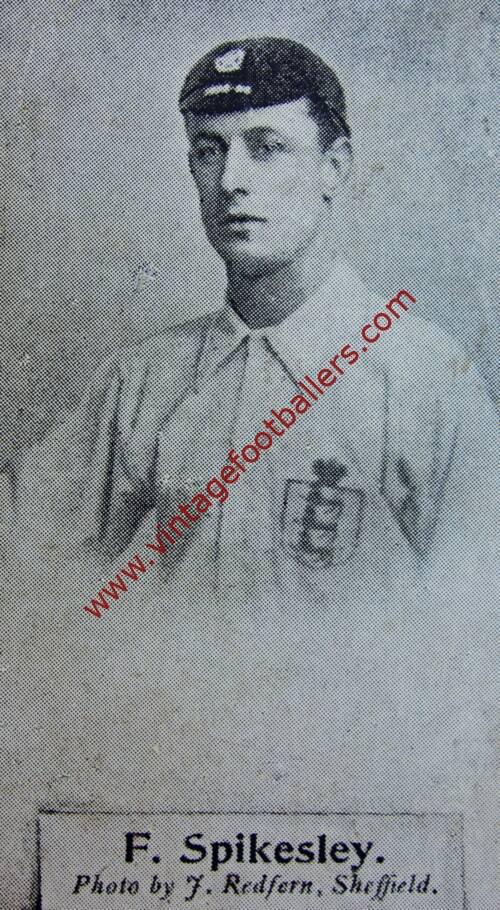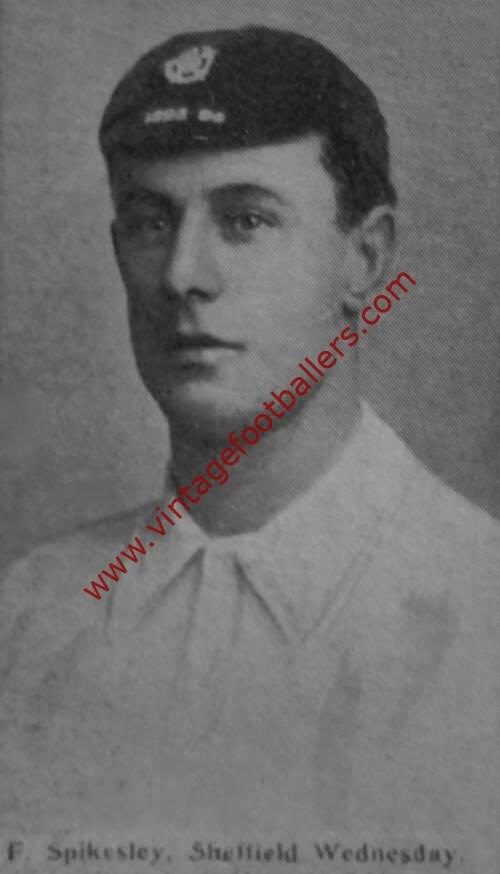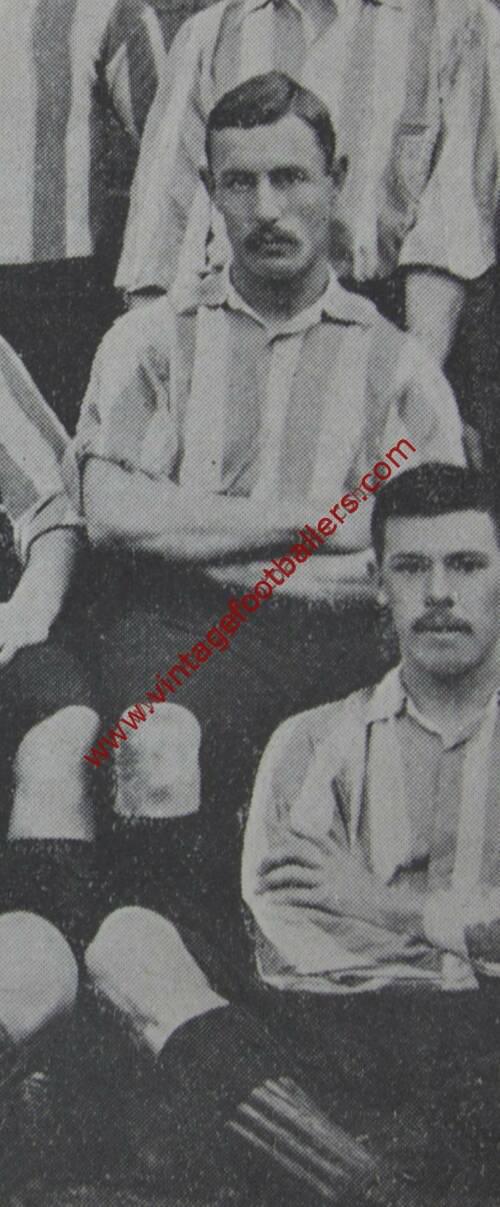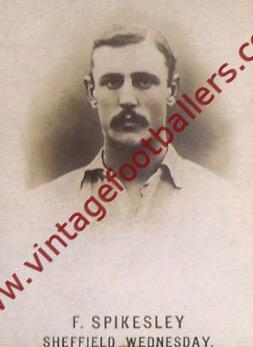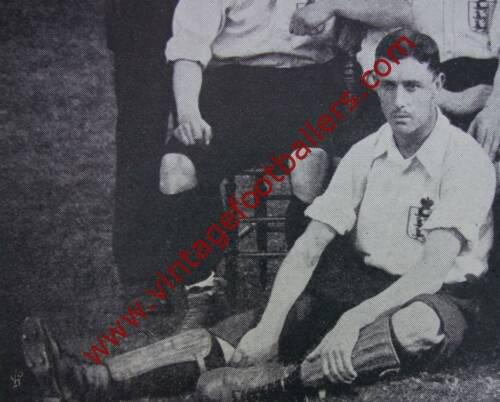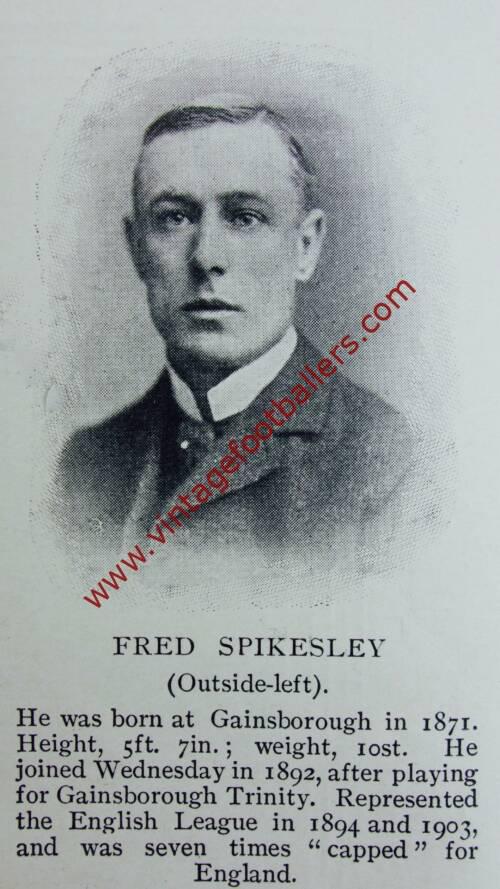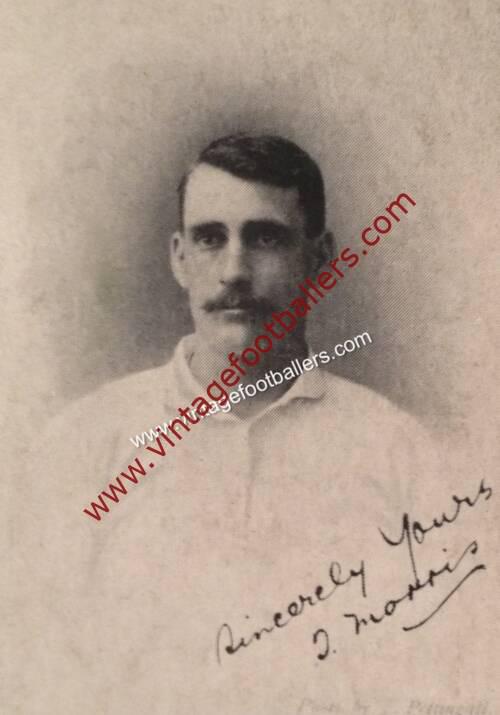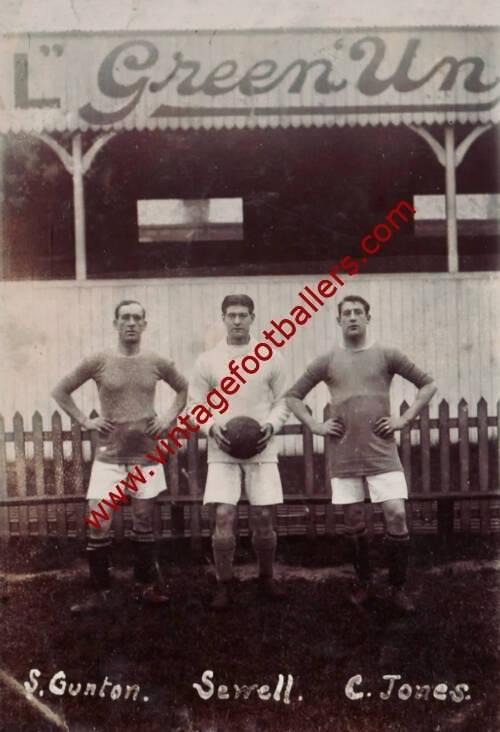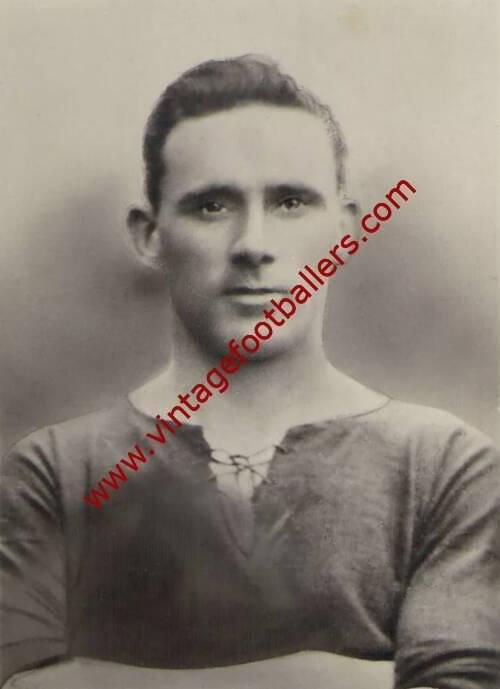Please choose your photo size from the drop down menu below.
If you wish your photo to be framed please select Yes.
Note: 16″x 20″not available in a frame.
Images can also be added to accessories. To order please follow these links
£8.95 – £49.95
Please choose your photo size from the drop down menu below.
If you wish your photo to be framed please select Yes.
Note: 16″x 20″not available in a frame.
Images can also be added to accessories. To order please follow these links
Gainsborough, Lincolnshire born outside left Fred Spiksley began his football career with Gainsborough Working Mens’ Club in 1883, playing for Horncastle n 1884 and Trinity Institute in 1885. In 1886 Spiksley was playing with Gainsborough Wednesday, as well as the Working Men’s Club. In March 1887, he was preparing to watch Gainsborough Trinity play, before stepping in as an emergency eleventh man, and in April 1887, he accepted an invitation to play with Jubilee Swifts. He signed with the Trinity club as a professional in the summer of 1887. During his time with Trinity he also represented Lincolnshire FA three times and Blackburn Rovers had attempted to sign him in 1890.
In January 1892, after 126 appearances and 131 goals for Trinity, Accrington Stanley tried to buy Spiksley, offering a higher wage, but on 26th January he was signed by the Sheffield Wednesday, effective from the end of the season. He also represented Sheffield & Hallamshire FA. Ernest “Nudger” Needham, who was to win 16 England caps while at Sheffield United, was part of the Staveley defence that lost 10-0 against Spiksley’s Gainsborough in 1891. “Our captain told me to shift from left to right to stop the outside-left,” he recalled. “I might as well have tried to stop the wind. The outside-left was Fred Spiksley, the finest outside-left I have ever met and whose dribbling was a treat to watch. He could either combine with the others and make openings by lively centres, or cut past the back on the inside to go for goal himself. He could also shoot with either foot. I shall never forget Freddy’s dazzling wing play in 1898, when England beat Scotland 3-1. Ah, Fred was a gem of a player in those days!”
He was called into the England squad for the international with Wales at Wrexham in March 1892 but was a non playing reserve. He made his Football League debut in their inaugural League fixture at Notts County in September 1892, and immediately made an impression, finishing the season as Wednesday’s leading goalscorer with 18 goals. His first England cap followed in March 1893, Spiksley scoring a hat-trick as England beat Wales 6-0 at The Victoria Ground, Stoke. Remarkably he followed up with a further hat-trick the next month on his second cap as England beat Scotland 5-2 at The Athletic Ground, Richmond.
He top scored for Wednesday with 16 goals in 1893-94. In 1894 Wednesday were losing FA Cup semi finalists, beaten by Bolton Wanderers at Fallowfield, Manchester, and in 1895 they lost in the semi finala to West Bromwich Albion at Derby, however in 1896 they went one better, and Spiksley scored both goals, including one in the opening minute (arguably the quickest goal in a Cup Final, “less than 20 seconds had passed”) to defeat Wolverhampton Wanderers 2-1 in the Final at The Crystal Palace, finishing the season as the club’s top scorer with 14 goals.
In the words of James Catton, the greatest football writer of the time, “Fred Spiksley’s control of the ball, his individuality, and his pluck for a man of modest stature, without much weight, were amazing. He did all his ball work with the outside of the right foot. In fact, Fred Spiksley could do almost anything he wanted with either foot, and was a sure marksman. Spiksley as a football player was a wonder.”
Spiksley again top scored for The Owls in 1897 and 1898, being an ever present in the 1898 and 1899 seasons, the latter of which ended in relegation to the Second Division. His England career continued until April 1898 by when he had scored 7 goals in his 7 international appearances. He also made two appearances for The Football League, scoring once. He won a Second Division Championship medal in 1899-1900, helping Wednesday to immediately regain their top flight status, and in 1902-03 he was instrumental in helping Wednesday to win the League Championship. However, a serious knee injury in August 1903, when he dislocated his knee and caused severe damage to his knee ligaments, meant he couldn’t play during their 1903-04 Championship season but he remained until on 1st May 1904, he was informed his contract had been terminated. He had completed 320 appearances, scoring 116 goals.
Despite his termination, Wednesday still held his registration, and still expected £250 for any release. Spiksley attended the Football League AGM to plead his case, and won. He signed with Archie Goodall’s Glossop North End on 1st September 1904. despite failing a medical. He made just five appearances during 1904-05, before re-joining non league Gainsborough Trinity. Again, he was granted a free transfer from his League registration with Glossop following League intervention. Spiksley joined Leeds City on 2nd February 1905 on a ‘pay as you play’ deal, making all seven exhibition appearances. As Leeds joined the Football League, in April 1905, Spiksley applied to join Southern United AFC of Nunhead, a club in the South-Eastern League Second Division, as player-secretary-manager. His application was successful, starting on 2nd June, being sacked on 22 January 1906. He also spent the duration and subsequent years scouting for Chelsea.
In February 1906, Jack Goodall convinced Spiksley to sign with Southern League Watford, Spiksley scoring five goals eleven appearances. Even Goodall came out of retirement to play alongside him once again. Spiksley was not offered a new playing contract at the end of the season, and so he retired form playing. He played for a Corinthians scratch team on 15th April 1907 that is deemed unofficial, if that is how the match against Tottenham Hotspur is classified, then Spiksley is most certainly the only unofficial professional to play for them, and score.
He spent the 1908-09 season as a referee in the Midland Counties League.
In 1910 he began a coaching career beginning in Sweden with Norrkoping, and in 1911 he managed the Sweden national team. He won league titles in Sweden and Germany, with AIK Stockholm and Nürnberg respectively. He also coached TSV Munich in 1913 before joining Nürnberg. Like many once-great players, he had little patience for his less skilled and dedicated charges; though the Swedish newspaper Idrottsbladet reported that he was friendly and popular, in Germany he earned the slightly puzzling nickname of Fred Spiegelei, or Fred Fried Egg.
He was coaching in Nuremburg in August 1914 when the First World War broke out and a decree was issued to arrest and imprison any foreigners in Germany aged between 17 and 45. Spiksley was six months shy of his 45th birthday. “We were placed in solitary confinement, and the treatment we received was terrible,” he wrote. “We were bullied about by the warders. One piece of black bread, almost uneatable, and water was the only food I had for four days.” With the assistance of the American consulate his wife somehow arranged his release and the family boarded a train to Lindau, which sits just across Lake Constance from neutral Switzerland. After the War he coached two clubs in Mexico, before returning to Nuremberg and finishing his coaching career with Lausanne Sports of Switzerland in 1928.
| Weight | N/A |
|---|
